
Home » Journal Articles » Thoughts & Opinions » Bob Leverich’s Schoolyard Commission in Granite
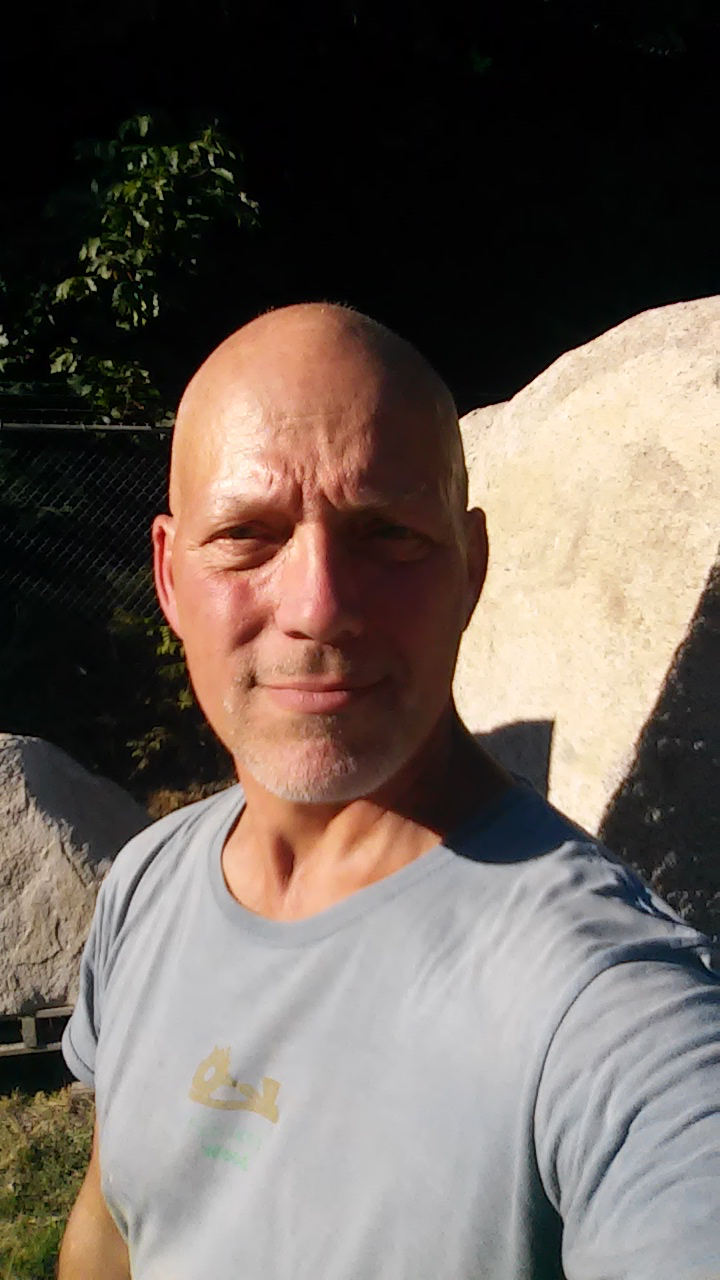
Bob Leverich’s Schoolyard Commission in Granite
By Bob Leverich
Hi NWSSA friends, Lane and Penelope have asked me to write a short report on the big boulder split I did with help from several of you last June, along with some background and an update on the project it’s part of – a sculpture on the grounds of Vashon Island High School, commissioned by the Washington State Arts Commission.
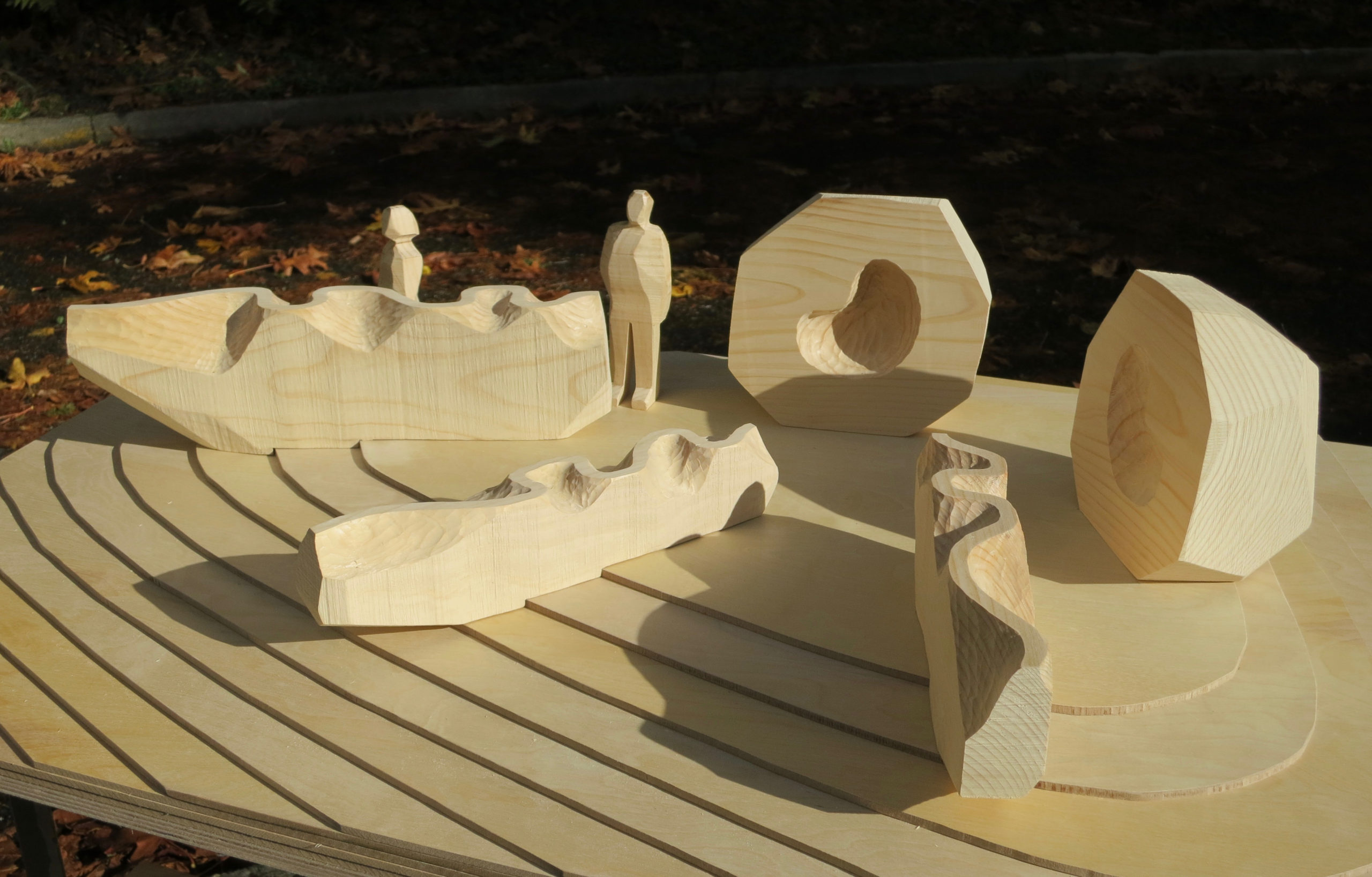
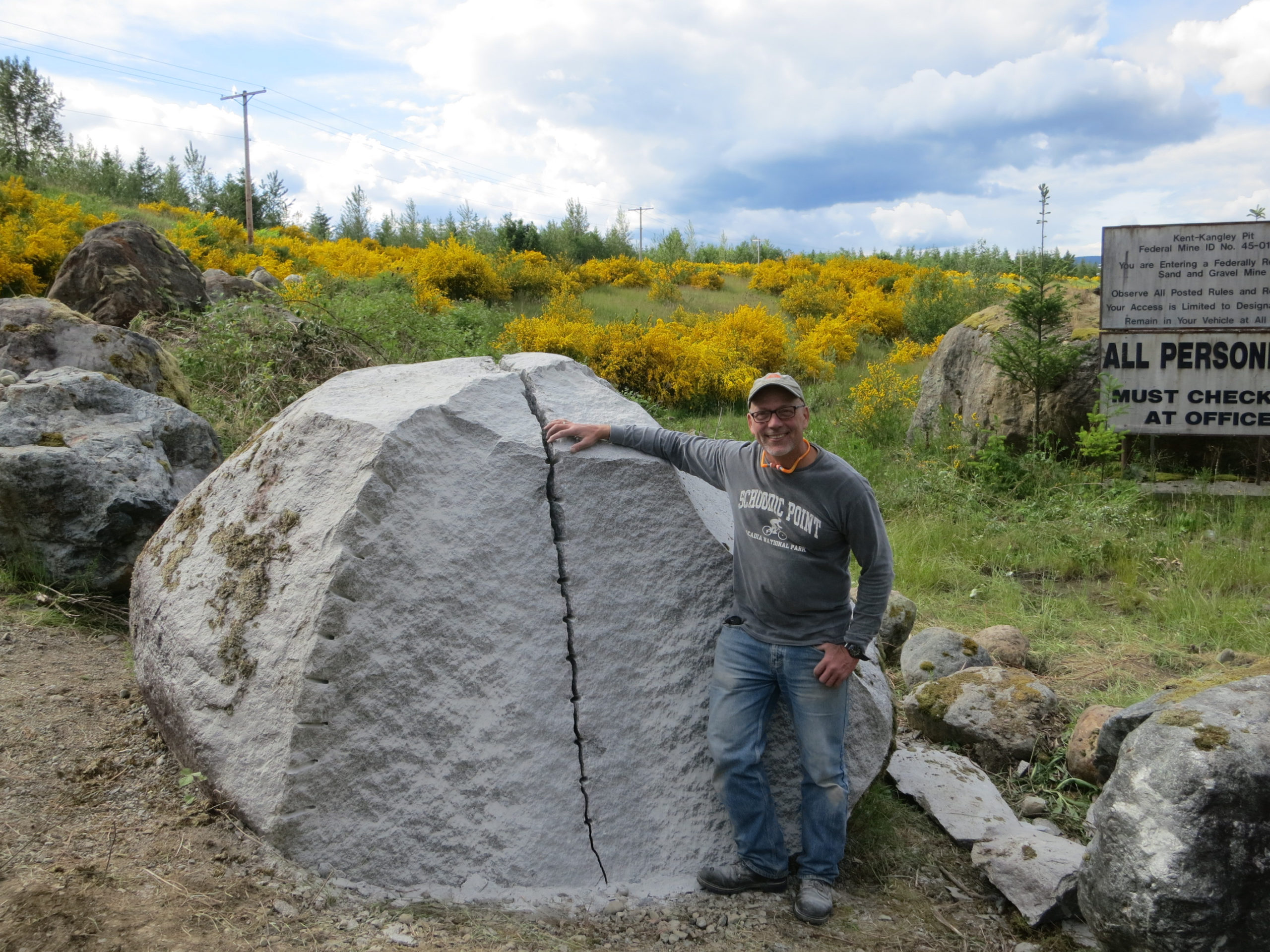
Background – After interviewing and being awarded the job at the end of 2015, I went to work researching the island and the school and developing concepts. The selection committee chose a concept centered on the metaphor of drawing out or educing – the root meaning of education. I presented dimensioned drawings, a large model, stone samples, and budget in October and selection committee approved unanimously. I told them I’d be using Cascade Granite. With lots of help from Rich Hestekind and Kentaro Kojima, I identified and tagged three large pieces of talus at Marenakos Stone to use for the horizontal stones in the piece. Finding just the right boulder proved to be a real challenge, particularly at this scale. At their suggestion, Rich and Kentaro and I visited a large gravel pit quarry with lots of boulders in Ravensdale, southeast of Seattle on a glorious October day. I looked far and wide for other sources but ultimately chose a large granite boulder at Ravensdale.
After lots more work on the budget, I signed the final Commission Contract in March. Marenakos cut flat bottoms on the three stones in the yard and delivered them to my work site in Olympia. Because of its size, we would have to split the boulder in the Ravensdale quarry. I got lots of good advice from NWSSA members, particularly George Pratt, and sculptor Jesse Salisbury, about boulder selection, grain structure, bedding planes, and splitting tools and strategies
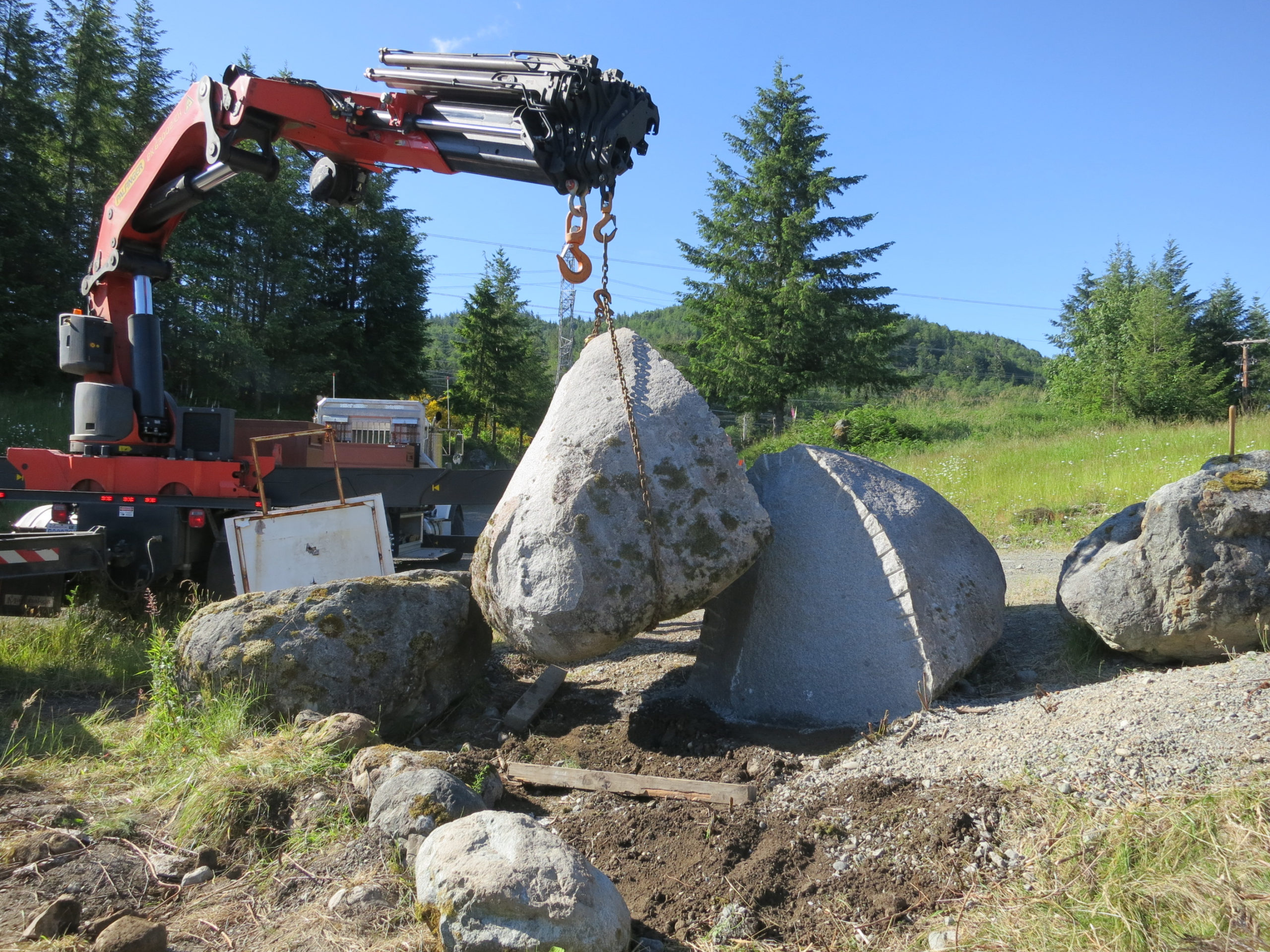
The Split – Very early on a Saturday back in June, we loaded up my pickup with a generator and lots of supplies and headed to the Ravensdale gravel quarry. We had a good group of helpers and onlookers: Pat Barton, Ken Barnes, Kentaro Kojima, Sue Taves, and Bill Gallagher from NWSSA, my assistant Grant Walker, four Evergreen State College students, the quarry watchman Walt Schorno, and several friends from Olympia.
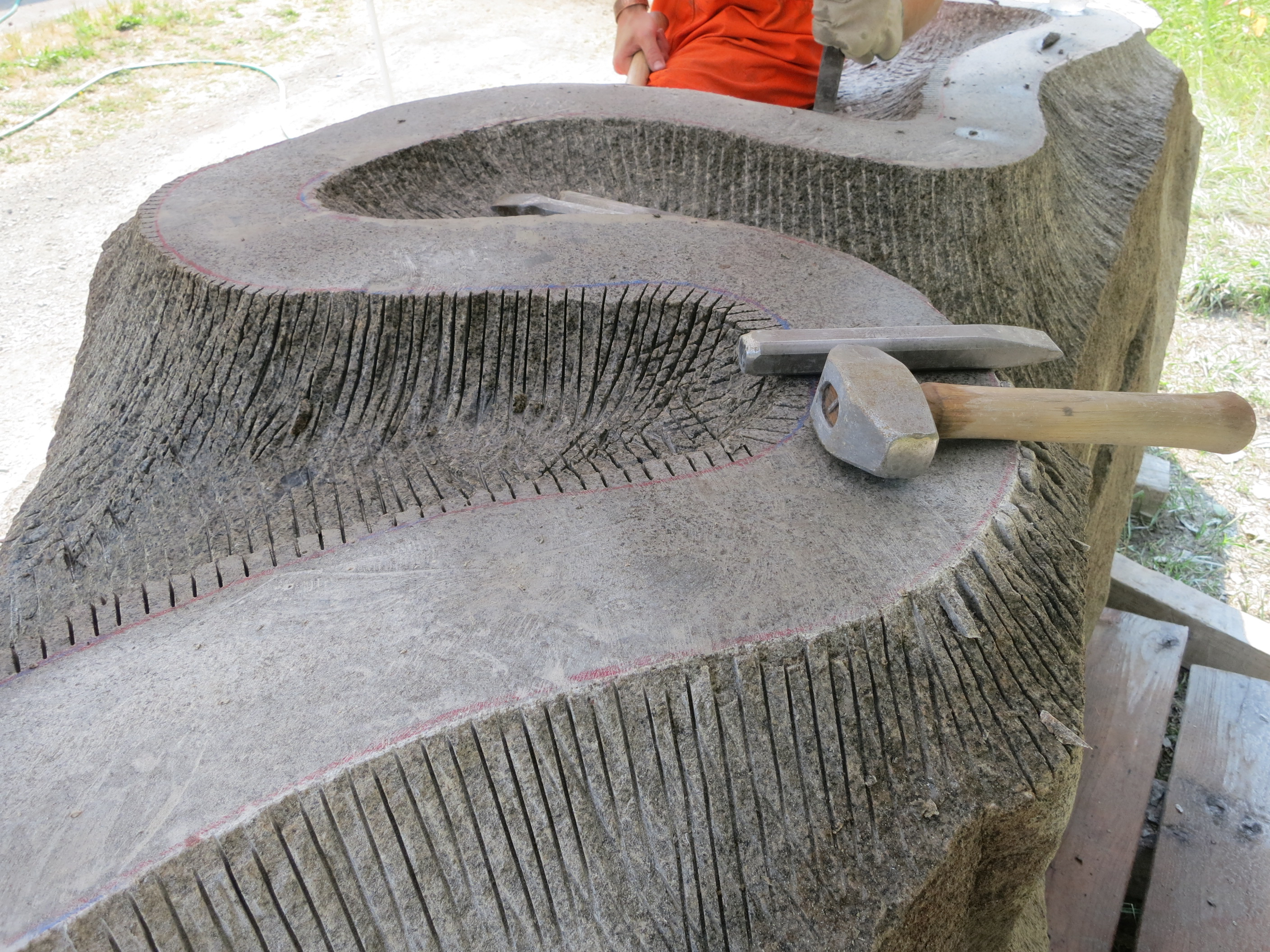
The boulder was about 6’ high and shaped like a chubby equilateral triangle, about 9’ on each side. Our first strategy was to go from one flattish face of the stone to the opposite corner. We drilled 36 holes 5 inches apart along our proposed split line, each about 6 inches deep. We inserted the feathers and wedges and hammered them in, waiting between each round of hammering. Several broad thin pieces cleaved off along the split line. The splits headed sideways through the weathered and more friable surfaces – a shorter, easier path – instead of down through the mass of the stone. One large corner of the stone split off from top to bottom – now the stone more oblong than triangular. We were all a little nonplussed, and I was flat out bummed. We took a break.
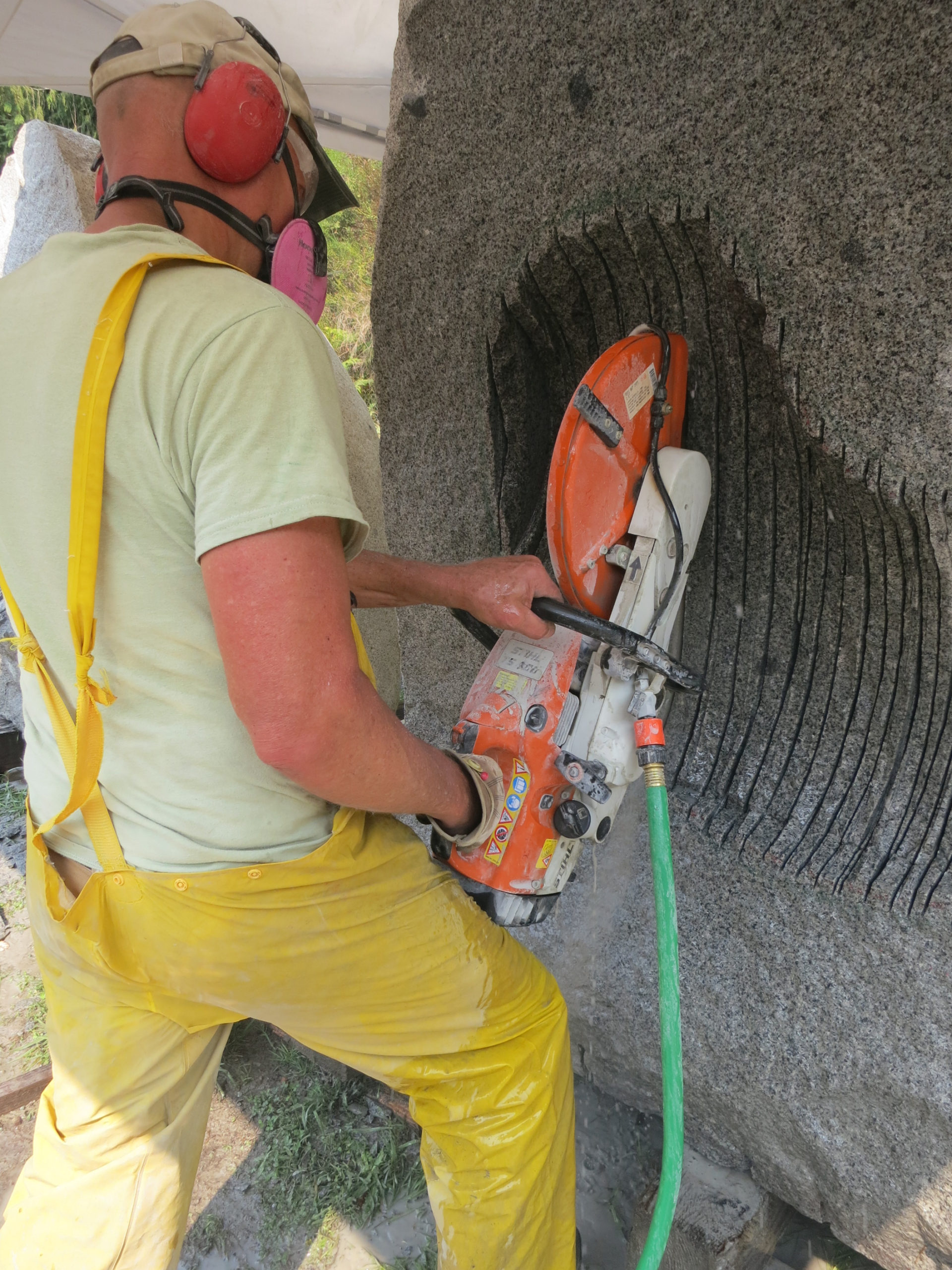
We asked Walt to get out his big Case tractor with a bucket and backhoe, and he dragged away the big corner piece, so we could consider our next move. It was around 2 PM, and we decided to try again, going perpendicular to the freshly split surface and across the now oblong stone. We drilled our holes, hammered in the feathers and wedges, and timed ourselves carefully this time, waiting 15-20 minutes between each round of hammering, and watching for minute cracks to appear, which they eventually did, moving from hole to hole and then through the entire stone, now a little more than six feet thick. We were careful to work the sides more than the more friable top. After five or six rounds of this, we heard the distinctive crackling as the stone gave way. Suddenly hammer blows on one side were causing the other side to split as well, and we knew we were through. We were all pretty excited and happy! That was right around 5 PM. I was, and still am, very grateful for all the help and good wishes from NWSSA members that day. The energy was with us!
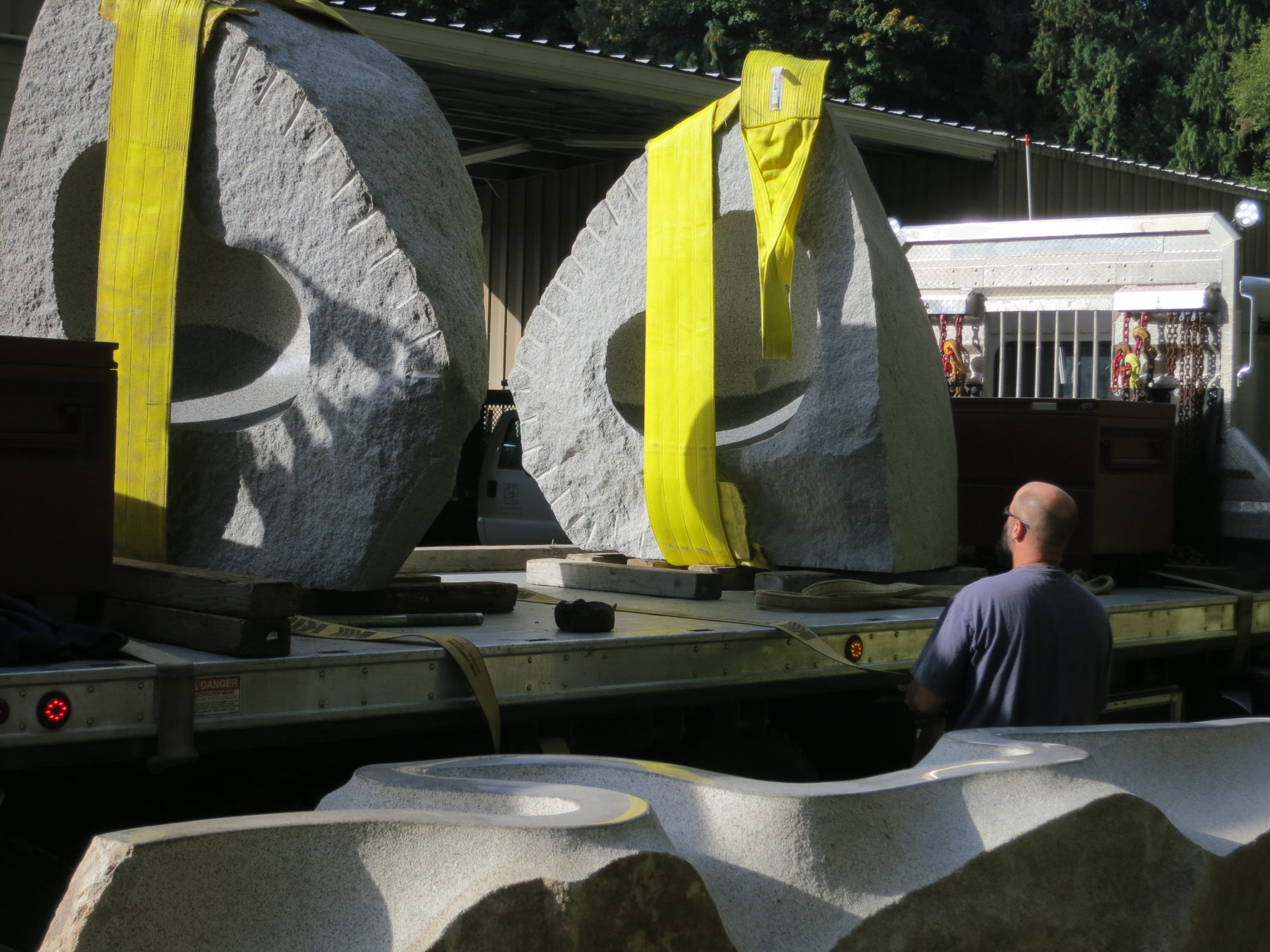
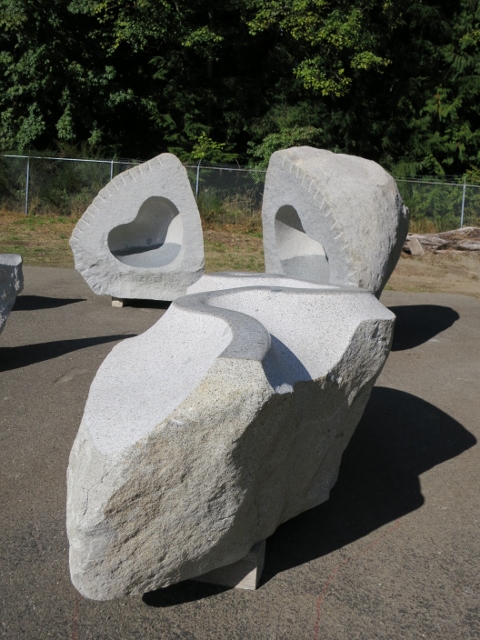
We all learned some things to consider the next time around – take account of surface weathering, consider carefully how both the mass and the form of the stone will constrain (or not!) the splitting plane, take plenty of time between rounds of hammering…. We might have intentionally taken off a corner at the start, to get a more oblong shape, and to tell us more about the grain direction of the stone. I’d say our first split line was running somewhat perpendicular to the bedding plane. It’s worth noting that the grain direction of the boulder became much more obvious to me recently when I began doing some final pointing by hand on one of the split faces. As with wood, hand tools tell you things about a stone that power tools simply don’t!
Update – Marenakos cut flat bottoms and drilled pin holes in the boulder halves and delivered them to the work site. I worked hard on the five stones all summer with three part-time student assistants and several others who filled in here and there. We did our roughing out with angle grinders rigged with water feeds to keep down dust from cutting and grinding. We made time to visit the Pilgrim Firs Symposium for a day, to set up my work in a show at the Vashon Center for the Arts and to host lots of visitors, including Ken Barnes who brought Uchida-san, Maori sculptor Barry Te Whatu from New Zealand, and Kentaro Kojima with Ida-san and his two Japanese colleagues (Makiko Nagano and Mitsuo Saiki) from Suttle Lake, as well. We pushed hard to get the stones substantially complete by the start of October and set them up in their final configuration. I took final detailed measurements and made full-size plywood templates. Then I staked out the site with the site contractor to start his work. I hope to schedule installation later in November, and a dedication sometime after that. You’ll all be invited!

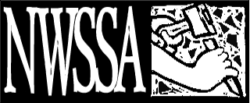
We need some kind of descriptive text here.